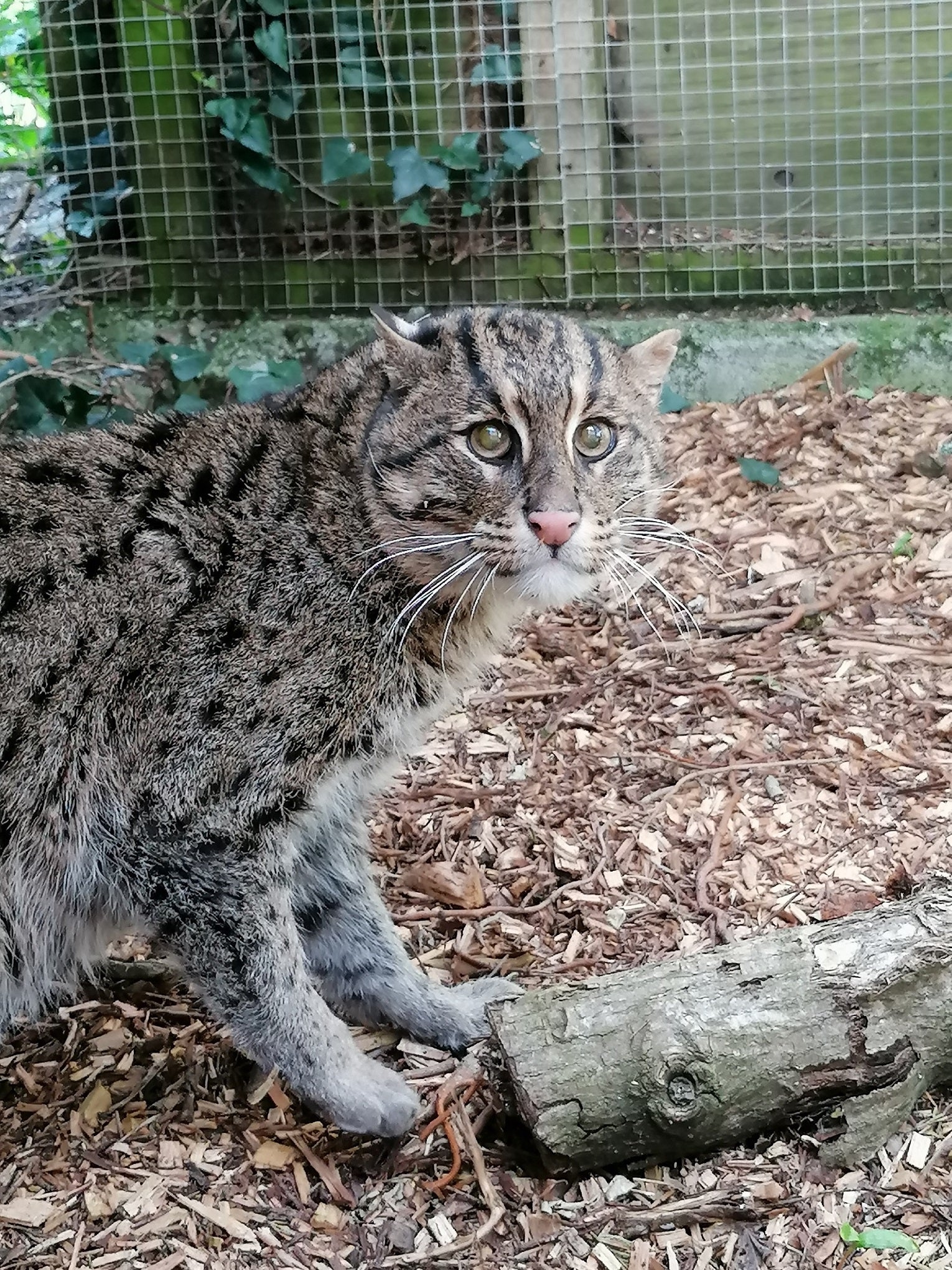Zoo welcomes rare male fishing cat with hope there could be future kittens
The new addition to Newquay Zoo in Cornwall, called Ozil, has been brought in to live with the zoo’s female fishing cat, called Freya.

Your support helps us to tell the story
From reproductive rights to climate change to Big Tech, The Independent is on the ground when the story is developing. Whether it's investigating the financials of Elon Musk's pro-Trump PAC or producing our latest documentary, 'The A Word', which shines a light on the American women fighting for reproductive rights, we know how important it is to parse out the facts from the messaging.
At such a critical moment in US history, we need reporters on the ground. Your donation allows us to keep sending journalists to speak to both sides of the story.
The Independent is trusted by Americans across the entire political spectrum. And unlike many other quality news outlets, we choose not to lock Americans out of our reporting and analysis with paywalls. We believe quality journalism should be available to everyone, paid for by those who can afford it.
Your support makes all the difference.A UK zoo has welcomed a rare male fishing cat, with the hope there could be kittens in the future.
The new addition to Newquay Zoo in Cornwall, called Ozil, has been brought in to live with the zoo’s female fishing cat, called Freya.
Endangered fishing cats are medium-sized wild cats that can be found in the wetland areas of South East Asia, northern India and Sri Lanka, in places such as swamps, marshes, lakes, creeks and mangrove forests.
They are bigger than a house cat, but not as big as a leopard or a tiger, and as their name suggests, this species of wild cat hunts fish, frogs and crustaceans by diving into the water to catch their prey.
They have been observed gently touching the water with their partially webbed paws to produce waves, mimicking insects landing on the surface of the water, and catching the attention of fish.
Fishing cats are classed as vulnerable in the wild, due to the destruction and pollution of their wetland habitats.
“Our female fishing cat Freya is very shy, so it can sometimes be a challenge to spot her,” said carnivore keeper Megan McEvoy.
“However, with the addition of Ozil, visitors will have double the chance of seeing this beautiful animal.
“With any luck, we may have some kittens in the future too.”
As the number of fishing cats decline, organisations such as Newquay Zoo are playing an important role in helping to house and breed the species as part of a European breeding programme and to spread awareness of this lesser-known cat.
Wild Planet Trust, the charity that runs both Newquay Zoo and Paignton Zoo, has been working to conserve threatened wetland habitats in the South West for almost 100 years with a reserve at Slapton Ley, on the south Devon coast.
Breeding rare animals such as fishing cats not only helps to increase the population but allows scientists to observe the behaviours of the species.